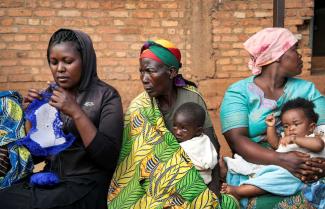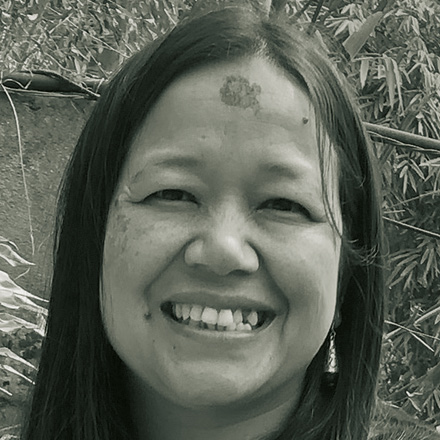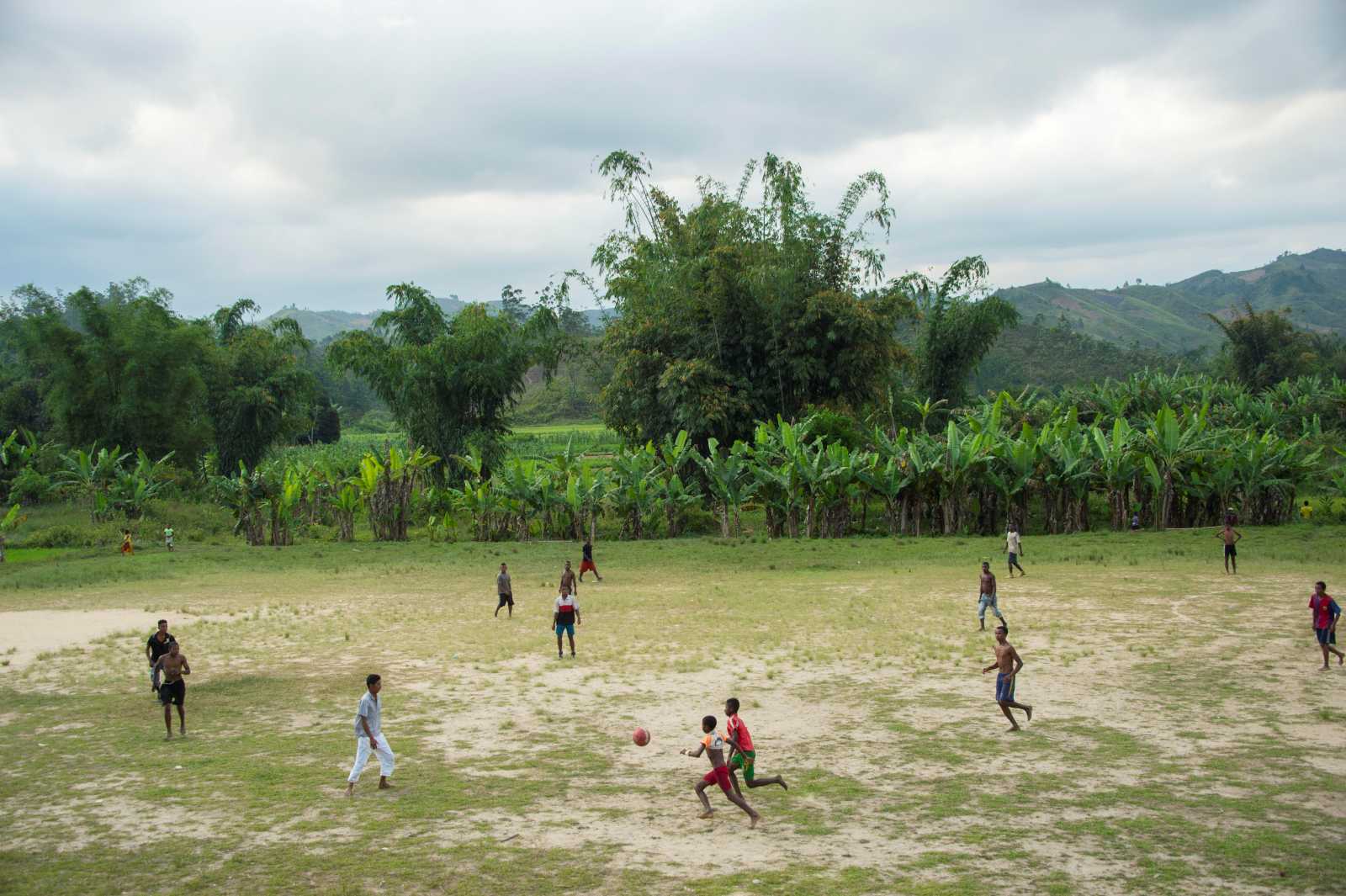Daily Life
Motherhood in Burundi

You work as a journalist and have five children, four of whom live at home with you. The youngest is just one month old. What is your daily life like?
My oldest son is 16 now and is starting his professional training. I am still on maternity leave at the moment. Soon I will start working again. My husband is a self-employed businessman in the private sector. He doesn’t earn much and his income is irregular, but it’s enough for us to live on. If he’s not working, he helps me with the children. We get ourselves organised and then everything works out.
What is maternity leave like in Burundi? How long are you allowed to stay home, and do you still receive an income?
A mother stays home for 49 days before and 49 days after the birth of a child while receiving full pay. After that she goes back to work as usual. It doesn’t leave much time to rest. Mothers are then given one hour each day for breastfeeding, which they can take in the morning, at noon or in the evening. For example, if they actually have to be at work at eight o’clock in the morning, they can come at nine o’clock during the breastfeeding period. However, this regulation only applies to the first six months after birth.
And then? How do you manage work with a baby?
Most urban families in which both parents work have domestic helpers who are also babysitters. We have this support too. The baby stays with them while the mother goes back to work. No one brings their children to work here – that’s no place for babies. It’s also pretty rare for women to stay home with the children and not go to work. Usually it’s not an option at all financially. But of course there are also single mothers. I have two colleagues who have to do everything themselves. And they definitely have to work. They couldn’t get by without a domestic help or support from their families.
Does that mean that most women in Burundi wean their babies after just a month and a half?
No, doctors recommend that we exclusively breastfeed for the first six months. Only after that do we begin offering our babies solid food. When I return to work, my baby will be bottle-fed, but mornings, evenings and nights I plan to keep breastfeeding. It’s important to me.
Will you get your old job back after maternity leave?
When I return to my workplace, I will be an editor again, but I will no longer hold a position of leadership and will therefore earn less. But that has nothing to do with my pregnancy. My employer had to restructure because of financial difficulties. The last pay check that I received was for July, and I didn’t get it until the middle of November. I’m just happy that I wasn’t fired and I’m hopeful that I can find other sources of income.
And when do children go to day-care or nursery school?
When children are five months old, they can theoretically go to day-care. But very few parents do that, because the facilities are not state-run, and are therefore very expensive. We can’t afford them either. The prices vary depending on whether the day-cares are in the city or further out. There are even VIP day-cares. In an upscale district of Bujumbura like Rohero, a spot for a five-month-old child costs 500,000 Burundi francs (BIF) per month (about € 220). To compare, I earn 400,000 BIF a month and have a good job.
What are school fees like?
For my daughter, who is in her fourth year at a private primary school, I pay about 20,000 BIF. The state-run primary schools are free, but the quality of education is poor. That’s why my children go to private schools. All in all, the prices for early childhood-education institutions are very high. That’s why most children don’t go to day-care, but instead start with nursery school at the earliest. School is compulsory starting at the age of seven.
Let’s talk about pregnancy. What is medical care like? Are there regular, prescribed doctor’s appointments?
Yes, most women I know receive medical care during pregnancy. I also had regular appointments with my gynaecologist. He checked on me and the baby. And during every trimester of pregnancy, the doctor also takes an ultrasound. I have private health insurance, which means that 85 % of the costs for these examinations were covered. We had to pay 15 % ourselves. But of course there are also women who can’t afford insurance or their contribution. And some women don’t want medical care. They put their trust in traditional medicine and say: “I’ll notice when the baby is coming!” That wasn’t what I wanted.
Birth is often very culturally defined. In some countries it is normal to receive pain medication, while in others it is decried. Caesarean sections are also much more common in some parts of the world than in others. What’s it like in Burundi?
Births usually take place without pain relievers, but directly afterwards women are prescribed antibiotics and other medication, which they pay for themselves. Little is done to alleviate pain during labour; it’s simply a part of the process. Caesarean sections are performed when it is medically necessary, which was never the case for me. My husband was present at all of my deliveries, but many women or their husbands don’t want that. Oftentimes it is impossible because the men are working. The fact that my husband could be present five times is rather an exception.
With five children, were you able to make a good post-partum recovery?
One of my children goes to boarding school. Therefore, I’m only home with four children at the moment. In the morning, the older children go to school and I’m home with the baby and the housekeeper. And she helps me a lot. She cooks, cleans and does the washing. In the afternoon, she picks up the schoolchildren and they also help me a little. That’s how I’m able to recover before going back to work shortly.
What do you want for your children’s future?
I hope that my children will have a good future and that we can earn enough income for them all. I want all of my children to be able to attend university. I am already preparing them for that. For instance, I ask them regularly what they want to be when they grow up and what they want to study. In doing so, I want to give them the courage to always go further, challenge themselves and believe in themselves. And I also always tell myself: everything will be okay! I’m an optimist.
Gloria Manirakiza (not her real name) is a journalist in Burundi.
euz.editor@dandc.eu













